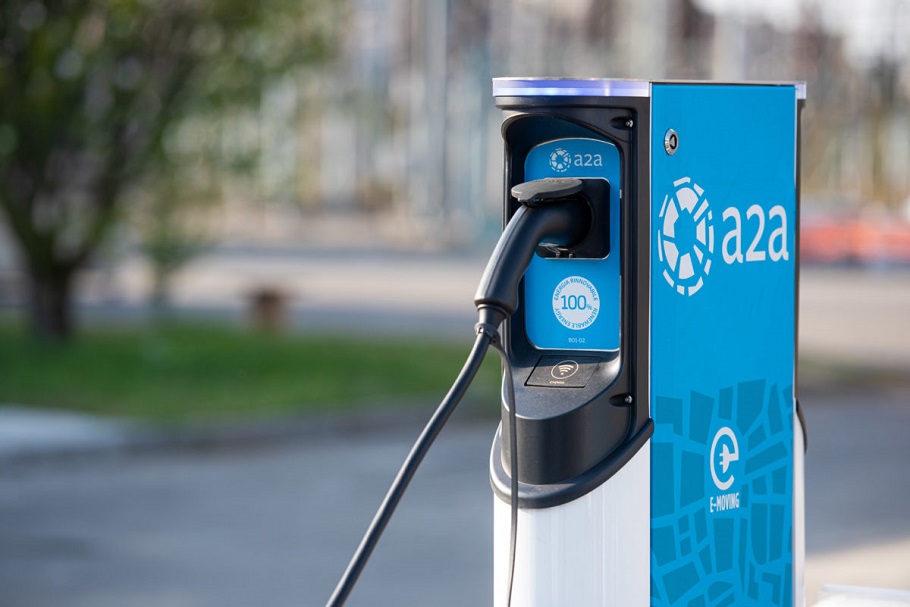The increasing demand for electric vehicles (EVs) in Italy makes it essential for charging infrastructure to expand at a similar pace.
The European Alternative Fuels Observatory (EAFO) reports that, by the end of the first quarter of the year, the country had 46,063 stations.
It is important to note that each charge point operator (CPO) sets its own rates, which vary based on factors such as the cost per kilowatt-hour, parking fees, fixed costs, and per-minute charges.
Which CPO in Italy offers the most competitive tariffs? Below, Mobility Portal Europe provides the data.
1° A2A
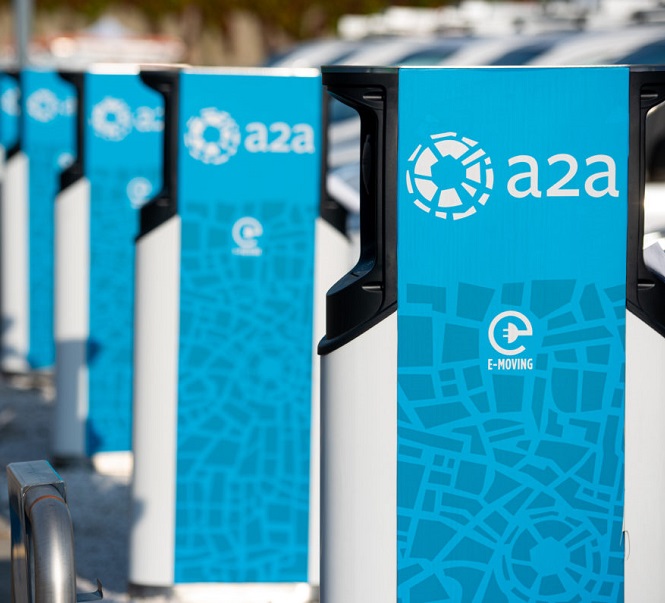
A2A stands out as the preferred solution for many electric vehicle drivers due to its affordability.
This option provides a fixed amount of kilowatt-hours, ranging from 40 to 200 kilowatt-hours, in exchange for a set monthly fee that ranges from 25 to 106 euros.
This approach significantly reduces charging costs, especially when compared to other available alternatives in the market.
For those who are not A2A Energy customers, the subscription offers three different levels.
The option for small vehicles provides 40 kilowatt-hours for 25 euros per month, equating to 0.6 euros per kilowatt-hour.
For medium vehicles, 100 kilowatt-hours are offered for 57 euros per month, resulting in a cost of 0.57 euros per kilowatt-hour.
The option for large vehicles includes 200 kilowatt-hours for 106 euros per month, with a cost of 0.53 euros per kilowatt-hour.
These costs, excluding Fast+ and Ultra charging stations, are competitive and allow users to save significantly on charging.
However, the company also offers other membership fees that reduce the costs.
The subscription for small vehicles with 40 kilowatt-hours is 22 euros per month, translating to 0.55 euros per kilowatt-hour.
For medium vehicles, 100 kilowatt-hours are available for 49 euros per month, resulting in a cost of 0.49 euros per kilowatt-hour.
The option for large vehicles includes 200 kilowatt-hours for 85 euros per month, with a cost of 0.425 euros per kilowatt-hour.
These additional discounts for Energy customers make A2A’s rates even more competitive.
2. Tesla
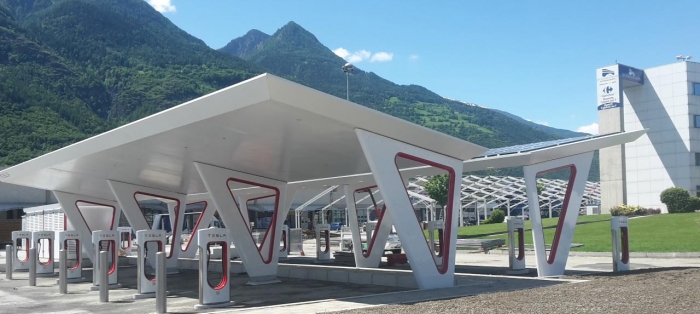
Secondly, Tesla, the electric car manufacturer, stands out for its rapid charging capability and accessibility.
With the opening of Superchargers to all drivers, although not in all locations, the company distinguishes between those driving a Tesla, who receive a reduced rate of 0.5 euros, and drivers of other electric vehicles, who pay a premium rate.
However, the latter can opt for a subscription at 9.99 euros per month or 100 euros per year, allowing them to access the same reduced rates as Tesla vehicle owners.
3. Ionity
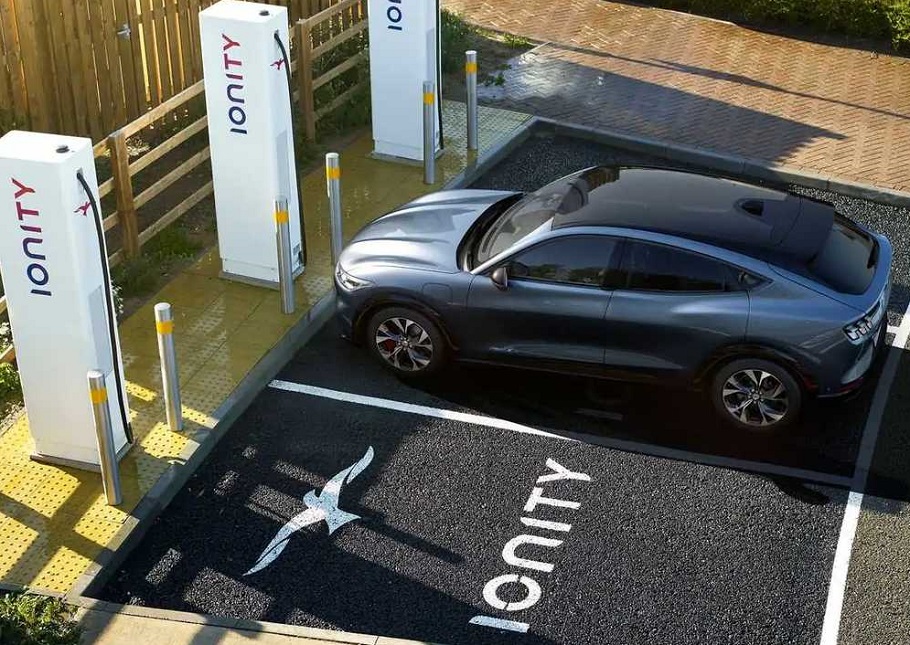
Ionity, recognized as a leader in high-power charging, provides consumption-based rates for 0.79 euros per kilowatt-hour, for power levels up to 350 kilowatts.
Additionally, it has established agreements with car manufacturers and offers two subscriptions: Passport Motion and Power.
These subscriptions, costing 5.99 and 11.99 euros per month respectively (with a promotion during the first month at 3.99 and 7.99 euros), reduce charging prices to 0.57 euros and 0.47 euros per kilowatt-hour.
Ionity’s pay-as-you-go option remains at 0.79 euros per kilowatt-hour, offering a competitive rate for those who prefer not to subscribe.
With these options, the company ensures flexibility and savings for electric vehicle drivers, adapting to the different needs and preferences of its users.
4. Enel X
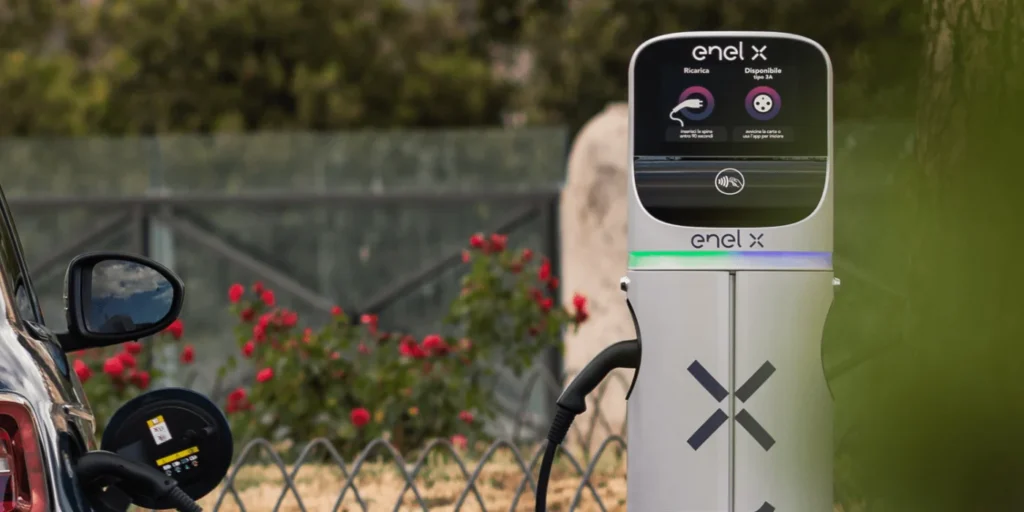
The company offers EV drivers their subscription called “city rate,” which includes 80 kilowatt-hours of energy for 49 euros per month, equivalent to 0.61 euros per kilowatt-hour.
Additionally, Enel X provides a pay-as-you-go rate that adapts to different charging needs.
The prices for this rate vary between 0.69 euros per kilowatt-hour for alternating current (AC) charging and 0.99 euros per kilowatt-hour for charges up to 350 kilowatts of power, with an intermediate rate of 0.89 euros per kilowatt-hour for charges up to 100 kilowatts.
Moreover, Enel X Way gives customers the option to subscribe to the “Premium 10 Pay Per Use” offer, which costs four euros per month with automatic renewal for 12 months.
This alternative provides a discount of ten cents on the kilowatt-hour rate and guarantees unlimited reservations at charging stations for one year.
It is an improvement over the basic “Premium Pay Per Use” offer, which offers unlimited reservations for 25 euros per year but without recharge discounts.
5. Duferco Energia
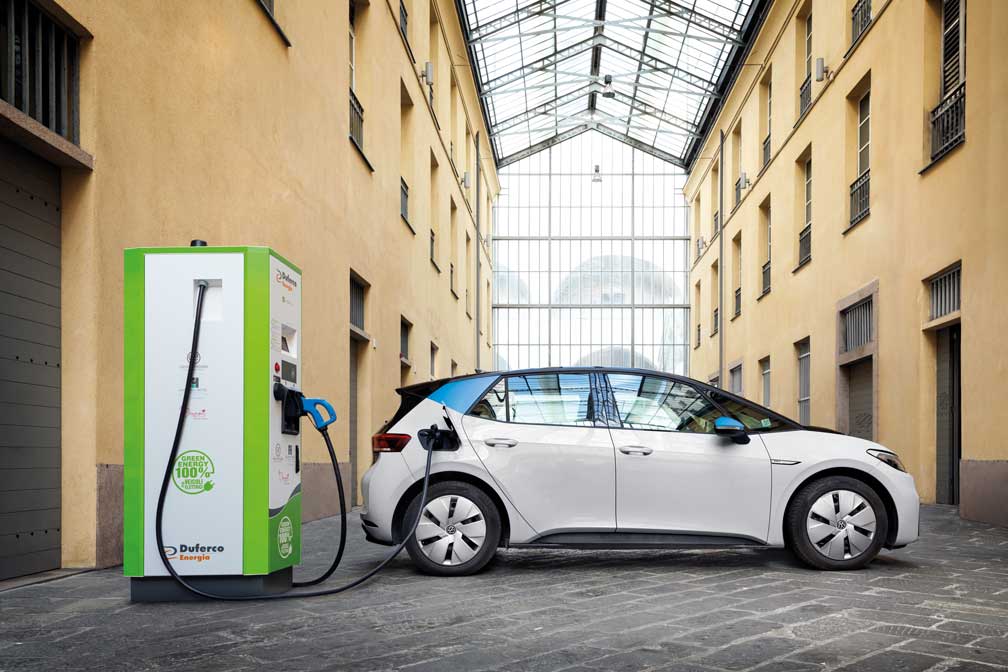
Duferco Energia’s subscription, called the “Flat Rate,” provides 200 kilowatt-hours per month for 129 euros, equivalent to 0.6 euros per kilowatt-hour.
However, this price only allows charging at fast charging stations, with powers of up to 50 kilowatts.
Conversely, pay-as-you-go pricing is highly variable, as it depends on power, days of the week (Monday to Saturday versus Sundays and holidays), and time slots.
Prices range from 0.59 euros per kilowatt-hour for quick and fast charging (up to 50 kilowatts of power) to 0.89 euros per kilowatt-hour for ultra fast columns (from 50 kilowatts).
The company also provides prepaid options, valid for three months, at Quick and Fast infrastructures.
These possibilities include packages of 100 kilowatt-hours for 65 euros (0.65 euros per kilowatt-hour), 150 kilowatt-hours for 95 euros (approximately 0.63 euros per kilowatt-hour), and 400 kilowatt-hours for 249 euros (approximately 0.62 euros per kilowatt-hour).
6. Be Charge
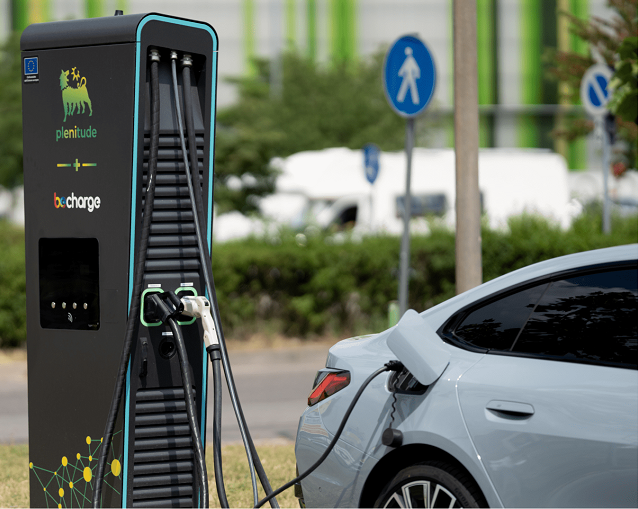
Be Charge presents a charging option that focuses exclusively on prepaid rates, as it does not offer monthly subscriptions.
Users can enjoy the convenience of charging their electric vehicle through this payment method, with prices ranging from 0.65 to 0.90 euros per kilowatt-hour.
Additionally, it offers prepaid packages, which are slightly cheaper than the actual cost of charging per use.
These packages provide a convenient way to manage charging costs and are available in three options: Be Card 50, Be Card 100, and Be Card 150.
It is important to note that these packages have a validity period of six months.
Be Charge’s prepaid rate adapts to different charging needs and powers.
For fast charging, with a power of up to 22 kilowatts per hour, the price is 0.65 euros per kilowatt-hour.
If a power of up to 75 kilowatts per hour is required, the price slightly increases to 0.85 euros per kilowatt-hour.
For fast and ultra-fast charging, with a power greater than 75 kilowatts per hour, the price is set at 0.90 euros per kilowatt-hour.
7. acea
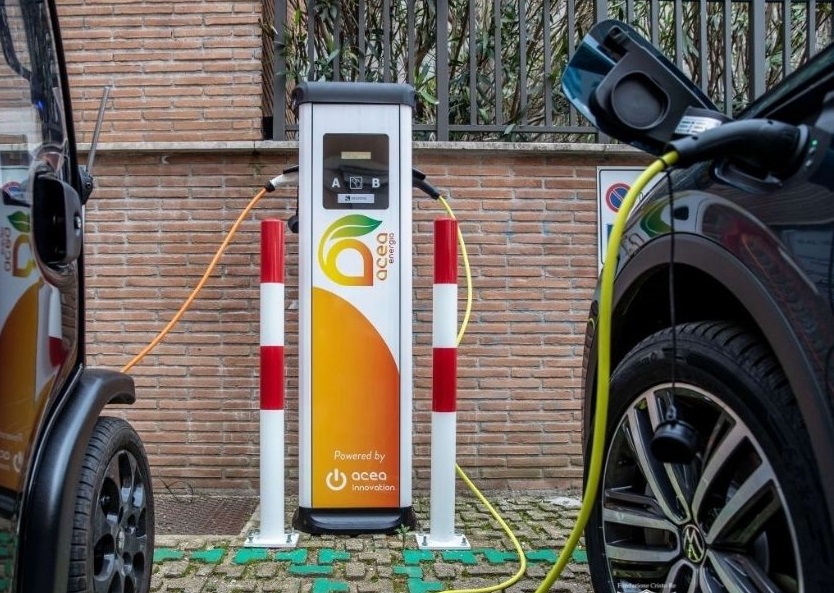
Finally, acea e-mobility ranks last on the list.
The company provides an alternative for electric vehicle charging through its nominative Radio-frequency identification (RFID) card.
It is associated with the personal account in the “Acea e-mobility” application and costs 16 euros per month.
With this card, users can charge their vehicle anywhere without needing to use the mobile application, which is useful in situations where the mobile phone may run out of battery or lose connection.
For those who prefer pay-as-you-go, the firm provides a clear pricing structure.
A charging station reservation fee of 0.50 euros applies.
Additionally, two different rates apply depending on power.
Fast charging with a power of up to 22 kilowatts per hour costs 0.69 euros per kilowatt-hour, while that with up to 50 kilowatts per hour of power is charged at 0.89 euros per kilowatt-hour.
Read more: Ecobonus in controversy? Italian eMobility grants run out in 9 hours sparking opinions





